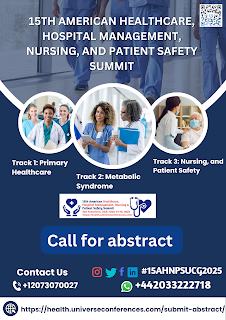Breast cancer - Symptoms and causes
One type of cancer that begins in the breast is breast cancer. An organ, the breast is located over the
upper ribs and chest muscles. Both the left and right breasts include mostly
fatty tissue, ducts, and glands. For the purpose of feeding babies and infants,
women's breasts produce and secrete milk. Each breast's size is based on the
quantity of fatty tissue there is.
With earlier identification, a novel individualized approach to therapy, and a better knowledge of the disease, breast cancer survival rates have improved and the number of fatalities linked to the disease is rapidly reducing.
Breast
cancer symptoms and signs might include:
• A
breast thickening or lump that feels different from the tissue around it
• A
change in a breast's size, shape, or appearance
•
Skin changes near the breasts, such as dimpling
• A
recently flipped nipple
•
Orange-skin-like redness or pitting of the skin over your breast
When
to visit a physician:
The
unusual growth of such breast cells may be what causes breast cancer, according
to doctors. These cells continue to multiply and divide faster than
mitochondria do, generating a bulk or lump. In order to reach your lymph nodes
or other regions of your body, cells can spread (metastasize) through your
breast.
The
risk of breast cancer may be increased by hormonal, behavioural, and
environmental variables, according to research. However, it is unclear why some
people with risk factors never get cancer while others with risk factors do.
It's likely that a complicated relationship between your environment and
genetic composition leads to breast cancer.
Breast cancer that is inherited:
The
most well-known ones are the BRCA1 and BRCA2 genes, which both dramatically
raise the risk of developing breast and ovarian cancer.
Your
doctor may advise a blood test if you have a strong family history of breast
cancer or other cancers in order to help identify particular BRCA mutations or
other genes that are being handed down through your family.
Think
about asking your doctor to recommend a genetic counsellor who can look through
your family's medical history. In order to help you with shared
decision-making, a genetic counsellor can also go over the advantages, hazards,
and limitations of genetic testing.
Anything
that increases your risk of developing breast cancer is considered a breast
cancer risk factor. In addition to being a woman, many women who acquire
breast cancer have no other known risk factors.
Reach out to us: https://breastcancerpathology.universeconferences.com/
Mail:
pathology@universeconferences.com| info@utilitarianconferences.com | breastcancer@ucgconferences.com
Whatsapp: +442033222718 Call: +12073070027
previous blog Post Links:-
· https://kikoxp.com/posts/11632
· https://www.blogger.com/blog/post/edit/3238443600245550728/7246086302346767315
· 10th World Breast Pathology and Breast Cancer Conference |
LinkedIn
· https://wordpress.com/post/breastpath2022.wordpress.com/6
· https://medium.com/@elizaedwards2021/breast-cancer-disease-f0324f19b8a2
· https://www.blogger.com/blog/posts/3238443600245550728
· https://www.reddit.com/user/breastcancerucg1/comments/th0lj8/breast_cancer_disease/
· https://www.blogger.com/blog/post/edit/3238443600245550728/5272365125212681129
· https://kikoxp.com/posts/10351
https://www.tumblr.com/dashboard
https://medium.com/@Andreaross01/breast-cancer-in-men-326a71409c5
https://www.linkedin.com/pulse/breast-cancer-men-dr-priya-pujhari
.png)
.png)


Comments
Post a Comment